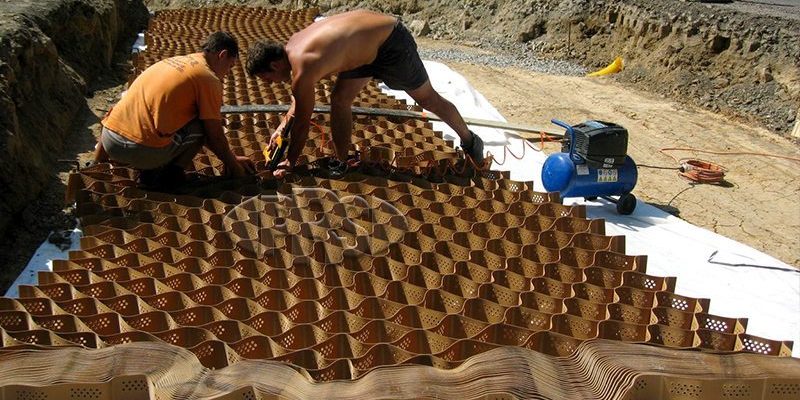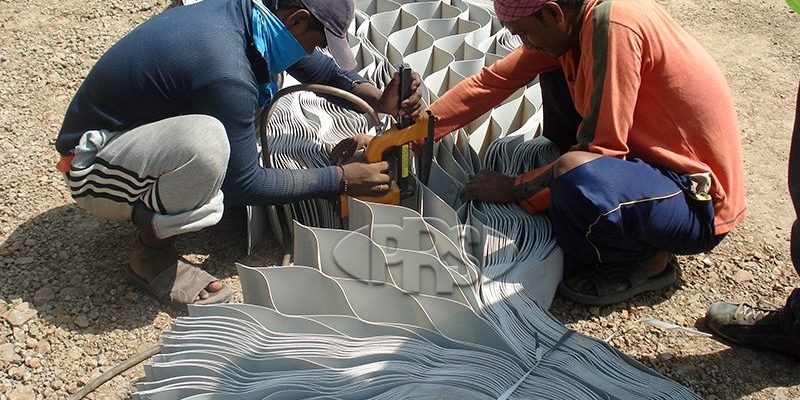Developing sustainable transportation infrastructure faces challenges of budgets, ground conditions and durability. That’s where Neoloy comes in. Neoloy Tough-Cells create a strong base for high quality roads, rails and ports that last longer at a lower cost. Limited budgets can then focus on new construction and maintaining aging infrastructure.
As a sustainable construction method, Neoloy Tough-Cells use on on-site, marginal and recycled materials for infill to reduce construction costs. This has a ripple effect by reducing the use of virgin aggregate and hauling it, was well as onsite placement and compaction. The high modulus of Neoloy Tough-Cells also enables a reduction in the thickness of the road layers.
At the same time, Neoloy extends pavement service life, thereby reducing operating expenses and long-term maintenance. And improving road conditions has far-reaching impacts. In addition to reducing greenhouse gas emission, improving the conditions of roads, according to the US National Highway Traffic Safety Administration, can reduce accidents and car-related fatalities.







